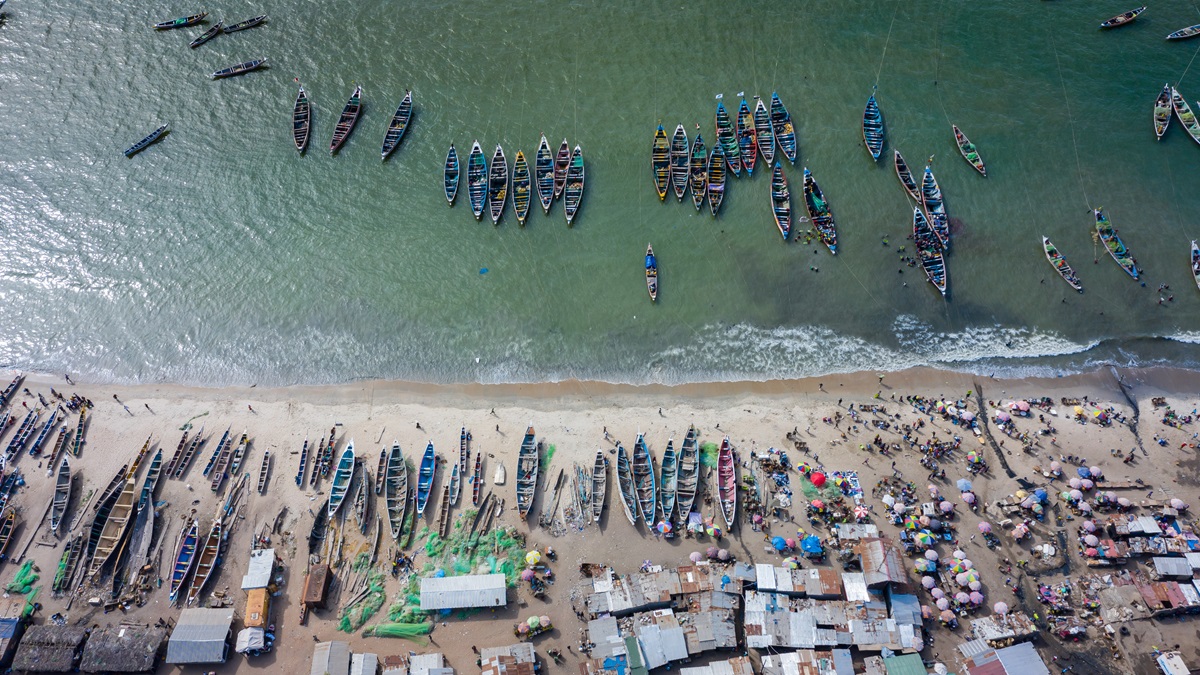Trade’s vital role in fostering sustainable ocean economies that leave no one behind will be in the spotlight during the high-stakes global meeting.
© Shutterstock/Curioso.Photography | Tanji, situated on Africa’s Atlantic coast, is one of the largest fishing villages of The Gambia.
The ocean, which covers 70 per cent of Earth’s surface, is essential to all life but is under exceptional strain.
Climate change, overfishing, pollution, underinvestment and fragmented governance threaten marine ecosystems and the livelihoods of over 600 million people who rely on fisheries – a sector that sustains some 100 million jobs worldwide.
Against this backdrop, the 3rd United Nations Ocean Conference, co-organized by France and Costa Rica, is set to take place on 9-13 June in the French city of Nice.
The weeklong event will accelerate global action and mobilize all actors – government leaders, policymakers, businesses, academia, civil society and beyond – to sustainably use the ocean while supporting livelihoods.
Trade is central to shaping the future of sustainable ocean development, given that more than 80% of the world’s merchandise trade is carried by sea.
UN Trade and Development (UNCTAD) will be present in force at the conference led by Secretary-General Rebeca Grynspan. The comprehensive agenda is available online.
Programme highlights: Inaugural ‘Ocean House’ and more
Leveraging the high-profile conference, UN Trade and Development seeks to spotlight the vital role of trade in fostering sustainable and inclusive ocean economies, particularly in relation to marine-based food systems, non-plastic substitutes including seaweed, maritime transport, coastal community climate resilience, and equitable development.
In the Blue Zone for governments and accredited organizations, the organization will contribute by leading Ocean Action Panel 6, focused on advancing sustainable ocean-based economies and maritime transport, as well as coastal community resilience.
UN Trade and Development will also co-organize side events to explore how trade, innovation and investment can turbocharge the booming ocean economy, where trade in ocean-based goods and services hit a record $2.2 trillion in 2023.
The organization’s data, policy analysis and project insights will support discussions at Ocean Action Panels 3, 4, 5, 6, 9 and 10 covering ocean finance, the circular economy, sustainable fisheries, ocean food systems and blue economy strategies.
In the Green Zone for public engagement, innovation and partnerships, UN Trade and Development will co-host the Ocean Sustainability Trade and Food House with the Aquatic Blue Food Coalition and in cooperation with the UN Food and Agriculture Organization.
Supported by Angola, France (with support from Seafoodia, an entity specializing in food supply chains), Portugal and the United Kingdom, the house – themed “The ocean that feeds us”—will spotlight how trade supports sustainable ocean-based food systems.
Additionally, UN Trade and Development will present a joint voluntary commitment with the UN Department of Economic and Social Affairs to support data-driven ocean action in small island developing states.
Policy recommendations for a future-ready ocean economy
Heading into the 3rd UN Ocean Conference, UN Trade and Development is continuing the momentum from the 5th UN Ocean Forum concluded in March 2025, which delivered 15 action-oriented recommendations aimed at:
- Integrating ocean sustainability into trade and investment frameworks.
- Strengthening the resilience of ocean-based food systems.
- Facilitating fair access to blue finance and ocean technologies, particularly for developing countries.
- Promoting sustainable fisheries and coastal livelihoods.
In addition, UN Trade and Development will call for urgent and practical solutions to:
- Strengthen ocean governance and align trade, investment and sustainability objectives.
- Improve data quality and availability on ocean trade and greenhouse gas emissions from maritime transport.
- Reduce marine pollution by promoting affordable, safe and sustainable substitutes and alternatives to plastics.
- Develop early warning systems to mitigate the impact of climate change on oceans.
- Accelerate the decarbonization of ocean-based sectors and integrate ocean- and climate-friendly measures into national climate action plans – also known as Nationally Determined Contributions.


